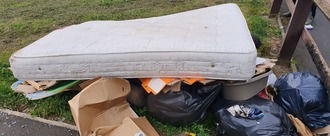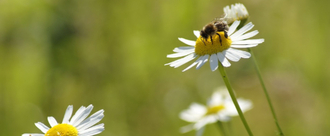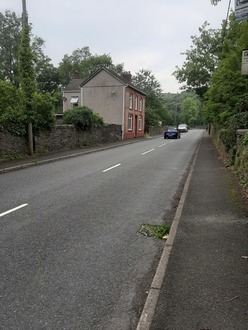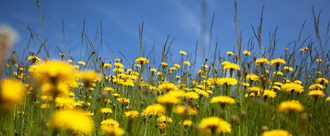-
STOP planned new dual carriageway through Sheffield South Street Park.We are concerned that for Sheffield City Centre, this Development Framework in its current form would increase air pollution and carbon emissions and would diminish a vital city centre green space. Sheaf Valley Park has been widely commended as an innovative and essential part of our city centre infrastructure. The Development Framework’s proposal to drive a dual carriageway through this park is deeply damaging, retrogressive and contradictory to the Council’s own transport, carbon and air quality targets. How can building a new dual carriageway ( swapping the existing dual carriageway with the existing tram line ) in the centre of the city reduce carbon and improve air quality when most independent research clearly states that new roads increase traffic and carbon emissions? It will not contribute to improving air quality and in fact will make air quality worse for Sheffield City as well as residents of Park Hill and the wider neighbourhood. New roads increase carbon emissions: It will not contribute to lowering carbon emissions and will have a substantially negative impact on total net carbon emissions for the project. Of equal concern is the apparent lack of strategic linkage to a clear vision for Sheffield City Region and Sheffield City Centre. The Development Framework is predicated on a series of engineering and land-based asset assumptions. It does not respond to a long-term net carbon zero future for Sheffield nor does it comply with or respond to the City Council’s own multiple strategic and policy commitments. There is so much more which requires an approach that goes beyond specific sites, traffic circulation and engineering design. The whole document appears to be lodged in a 20th century car dominated policy framework, driven by trying to address historic road-based development objectives, without any balanced evaluation of the viability, practicality or value of these assumptions. It is a deeply retrogressive and old-fashioned perspective on city development. The regeneration of the Midland Station ought to be a beacon and demonstrator for Sheffield City Region, pioneering less car traffic on roads; more active transport infrastructure; more greening and a brave and ambitious commitment to integrated, zero carbon transport systems. Instead it feels like a throwback to the 1960s where ring-roads of polluting traffic encircled our cities and personal mobility trumped mass transit systems and where there was scant regard for the impact of fossil fuels and their impact on our natural environment. We welcome the principle of the grey to green conversion of multiple roads as part of the wider strategy. This should be the opportunity for our city of Sheffield to grasp taking a new direction rather than a process of retrogressive transport planning.115 of 200 SignaturesCreated by Kim Swan
-
Act on the Climate EmergencyParliament declared a Climate Emergency over a year ago - and still not enough is being done to stop the worst effects of the climate crisis - in the UK and across the world. The Climate and Ecological Emergency Bill, which already has the support of 70+ MPs, calls for the UK to make and enact a serious plan to cut our emissions, protect our nature, and give ordinary people a real say on the way forward, through a citizens’ assembly. The climate and ecological crisis is the biggest threat to all life on Earth we have ever faced, it is vital we act now and this bill would be a very encouraging step. But for this Bill to stand a chance of becoming law, a majority of MPs need to support it. That’s why I am calling on our MP Rushanara Ali to please support the Climate and Ecological Emergency Bill. Please join me! You can find out more about the Climate and Ecological Emergency Bill here: https://www.ceebill.uk/256 of 300 SignaturesCreated by Grace McMeekin
-
Stop the Cumbria Coal Mine!***New coal mines = climate crisis*** This mine will create 9 million tonnes of CO2 every year through coal burned in UK and European steelworks.That's three times what all the people of Cumbria produce every year [1]. It's 2% of the UK's carbon footprint, which makes it a decision of national importance. Top economists and energy experts agree that this mine cannot be 'carbon neutral' as Cumbria County Council claim, instead it will worsen the climate crisis. [2] ***Breaking the law*** The Heathrow judgement showed that the Paris Agreement [3] must be taken into account in decisions about new high-carbon projects, which is why Robert Jenrick must step in. The UK will host the UN climate summit COP26 in 2021, so starting a mega-polluting coal mine would undermine these vital talks ***No more coal for steel*** The UK's two steelworks are the biggest single-site emitters in the country[4] because of their current reliance on coal, but you can make steel without coal. The mine will lock the steel industry in the UK and Europe into using coal for decades to come, instead of switching to viable alternatives, when instead a transition to clean steel could begin right now.[5] ***The impacts on Cumbria*** The impacts of climate change fall first and hardest on communities in the global south, who are already being impacted. But Cumbria itself is also vulnerable to increasing sea level rise and flooding, which are predicted to get more severe if we don't keep global temperatures under 1.5 degrees [6]. The economic impact of the jobs the mine would provide would be far outweighed by climate impacts on the local economy. [7] As Communities Secretary, it's Robert Jenrick's job to refuse permission to projects that are harmful to communities and that conflict with the UK's international commitments on climate change. It's his job to promote alternatives that would be better for communities. We need a Green Recovery that invests in our futures, instead of being forced to rely on polluting projects for jobs. THANK YOU Learn more about the local groups leading the fight to stop this mega-polluting project: https://www.coalaction.org.uk/2020/09/07/campaigns-to-stop-woodhouse-colliery-cumbria/ REFERENCES [1] Small World Consulting: A Carbon Baseline for Cumbria https://slacc.org.uk/cumbria-carbon-baseline/ [2] UCL: Top Economists & Energy Experts claim Ministers mislead over coal & climate https://www.ucl.ac.uk/bartlett/sustainable/news/2020/sep/coal-and-climate-ministers-need-reject-misinformation-new-coal-mines [3] Heathrow Third Runway Ruled Illeagal Over Climate Change https://www.theguardian.com/environment/2020/feb/27/heathrow-third-runway-ruled-illegal-over-climate-change [4] EU ETS Emissions 2019 https://ember-climate.org/project/ets-2019-release/ [5] Materials Processing Institute Report Coal & Steel June 2020 https://slacc.org.uk/wp-content/uploads/2020/06/SLACC_Appendix-2_MPI-Report_11-06-2020.pdf [6] Areas in Cumbria that could end up underwater due to global warming https://www.lancs.live/news/local-news/areas-cumbria-could-end-up-18256314 [7] Presentation by Duncan Pollard on WCM https://slacc.org.uk/new-presentation-by-duncan-pollard-on-wcm/114,996 of 200,000 SignaturesCreated by Anne Harris

-
Make the Harrogate Stray more bee-friendlySince the 1930s, our traditional wildflower meadows have declined due to human practices - we now have a responsibility to regenerate land wherever we can; from adding natural verges, and wildflower areas to tree planting and halting the use of pesticides. If managed sensitively, the Stray can add to a local diverse and ecologically complex environment to help reverse the decline of insects, including essential pollinators.670 of 800 SignaturesCreated by Hannah Corlett

-
Save COUL LINKS protected nature from destructive Déjà Vu Groundhog golf courseFor the 2nd time in 6 years a planning application for an 18-hole international golf course threatens Coul Links, within Loch Fleet Site of Special Scientific Interest (SSSI), Loch Fleet & Dornoch Firth Special Protection Area (SPA) & Ramsar wetland. Councillors approved of this Groundhog application by a whisker on 6 Dec 2023, but Scottish Government called it in on 8 Feb 2024 for review. The Screening Request was from a councillor on behalf of a defunct football club, but Scoping & Full application were adopted by an astroturfing & greenwashing stalking horse, Communities for Coul (C4C), purporting to represent local populace (see Updates ↓ of 16 June 2021 & 27 Aug 2023) but representing golf & tourism interests in coastal Sutherland, appointing same developer, applicant of 1st failed planning application, & intending to dissolve! The 2023 golf course plan is similar to the ‘environmentally friendly’ design of previous Coul Links Ltd planning saga, first mooted in Oct 2015, approved almost unanimously by councillors, but refused in 2020 after Scottish Government intervention. The decision followed crucial objection by government agency Scottish Natural Heritage (now NatureScot); recommended refusal by Highland Council’s Planning Officer; 1864 planning objections, a campaign by Buglife, Butterfly Conservation, Marine Conservation Society, National Trust for Scotland, Plantlife, RSPB, Scottish Wildlife Trust, Ramblers, Scotways & Not Coul (all objecting again); a Wembley Stadium capacity 38Degrees petition https://you.38degrees.org.uk/petitions/conserve-coul-links-for-nature-not-golf-1 (please sign); & 4 weeks of Public Local Inquiry, whose Report recommended refusal. Scottish Ministers summarised in Feb 2020: “Reporters have concluded that the harmful impacts of this development to protected habitats & species would outweigh the potential socio-economic benefits. This proposal does not comply with the relevant provisions of the Highland Wide Local Development Plan & runs contrary to Scottish planning policy’s emphasis on protecting natural heritage sites & world class environmental assets. The Scottish Government has considered the reporter’s findings carefully & agree with the recommendation that planning permission should be refused”. The developer to re-emerge is Mike Keiser of Bandon Dunes Oregon, Cabot Nova Scotia (NS) & Cabot Highlands UK. He was a funder of Heartland climate change denial Institute https://littlesis.org/person/42895-Michael_Keiser & doesn’t have an impeccable conservation record in Oregon: https://oregoncoastalliance.org/bandon-dunesbiota-bulldoze-roads-and-dig-bore-holes-in-bandon-state-natural-area/. Cabot NS failed to obtain a lease to convert wild protected public dunes to a golf course: https://www.cbc.ca/news/canada/nova-scotia/west-mabou-beach-provincial-park-cabot-golf-tory-rushton-1.6817243. The only substantial improvement to the previous course design is abandonment of the major juniper translocation experiment within the SSSI. Assertions common to both planning applications & their inadequate Environmental Impact Assessments were refuted by Inquiry. One is that golf will only impact 1% of the SSSI, which is predominantly tidal estuary & contains substantial areas of beach, saltmarsh & native pinewood. This ignores effects of retreating coastline, expanding wetlands, golf management & disturbance beyond constructed tees & greens of biopoverty lawns, & intensively mown fairways, & effects of habitat fragmentation on ecological integrity. Tees & greens would be excavated, recontoured, turfed with amenity grassland, fertilised & irrigated. Fairways, ostensibly to preserve biodiversity & naturalness, would be mown weekly during growing season, compacting irregular topography & gradually reducing any sward to the most mower & trampling-tolerant (from 25,000 rounds per annum) grasses & mosses, with no opportunity for surviving herbs to flower. Dune heath, chiefly of heathers, mosses & lichens, with sparser & tussocky grasses, would be obliterated by mowing, leaving habitat susceptible to more wind erosion than desirable. Mowing would nowhere produce a world-class playing surface & eroded areas would likely be patched up with introduced grasses, & 'weeds' treated with herbicide. C4C claims that golf development is the only way to fund conserving Coul Links for nature, with golf management ending management neglect (by the landowner, a 2017 developer), initiating removal of ‘invasive’ species. This is untrue, as a land management agreement with NatureScot has commenced & funds are available for future work. Gorse, birches, Bracken, Meadowsweet & Burnet Rose are all perceived by the development team as undesirables to be severely controlled, despite their collectively supporting numerous insects & some nesting birds. While some control of first three species is desirable to preserve more valuable habitats, they are all natural & native components of dune vegetation. Bracken supports Stonechats & insects including: https://butterfly-conservation.org/sites/default/files/habitat-bracken-for-butterflies.pdf. Coul Links is one of the most biodiverse & intact dune habitat systems surviving in Scotland, where much has already been lost to golf. Naturalness, supported by size, is a chief criterion for SSSI evaluation & selection. Golf would destroy that integrity. 50% of the anticipated market for Coul Links golf would be from USA, jetting to Scotland to contribute to climate warming emissions & coastal erosion. DPEA Hearing: Scottish Government - DPEA - Case Details (scotland.gov.uk) Planning: https://wam.highland.gov.uk/wam/ ref. 23/00580/FUL Not Coul: https://notcoul.org/ https://www.youtube.com/watch?v=Bnm7krCGoGQ&t=4s Coastal Erosion Crisis: https://www.youtube.com/watch?v=I_Zpr6c1elI&list=LL Information: https://www.coullinksgolf.com/ Photographs: Coul-Links-Comparative-Photographs-by-Andrew-Weston-September-2024-FINAL.pdf Coul-Links-Supplementary-Photographs-by-Andrew-Weston-September-2024-FINAL.pdf 'Community' propaganda: https://www.communities4coul.scot/24,996 of 25,000 SignaturesCreated by Andrew Weston

-
Ask Alister Jack to support the Climate and Ecological Emergency BillWe are facing an unprecedented climate crisis crisis and the UK government simply isn’t doing enough. The Climate and Ecological Emergency Bill can help us change our course—making the government act with the urgency we need and involving everyday people in a Citizens’ Assembly that has real bite. If the CEE Bill is made law, the government would have to act fast, accounting for our entire carbon footprint while actively conserving nature here and overseas. The bill could set a precedent that can be replicated across the world. According to They Work for You, a website that documents MP voting records, Alister Jack "generally voted against measures to prevent climate change". Recently he refused to meet with a constituent to discuss environmental issues on the basis that he'd "already had discussions with an environmental group this year". It is vital that local environmental groups and concerned citizens have the opportunity to convey to Alister Jack the severity of the crisis we are facing and to demand his representation in parliament. Encouraging him to support the Climate and Ecological Emergency Bill would be a great start!223 of 300 SignaturesCreated by XR D&G
-
Save Our TreeThe tree is part of Goat Street and the only street tree we have. It is important for the environment, for the quality of air we breath, for the nesting birds and great source of pollen for the bees in spring.276 of 300 SignaturesCreated by Rosina Coe
-
Clean up Newcastle's West End!For years, we've had a major problem with litter and fly-tipping in the West End. Despite the Council introducing communal bins to some areas, there has been inadequate action to tackle all of the issues. The shopping areas along West Road and Westgate Hill, Adelaide Terrace, Elswick Road, Slatyford Lane and Two Ball Lonnen and the back lanes in the terraces of Arthur's Hill, Benwell, Elswick and Wingrove are particularly badly affected. Children have to walk though rubbish on their way to school and when playing out. Local businesses are affected as the litter problems reflect poorly on the West End. Local residents are fed up with so much rubbish in their gardens, streets and parks. Litter looks unsightly, pollutes our environment, harms our wildlife and attracts vermin - the West End deserves better!297 of 300 SignaturesCreated by Taymar Pitman

-
Pesticide-Free Currie, Juniper Green & BabertonThe City of Edinburgh Council use Glyphosate for weed control on our streets, pavements, parks, playgrounds, around schools, cemeteries and green spaces. Glyphosate is under worldwide investigation for its multiple harmful effects on human and animal health including Cancer. It is linked to many health concerns such as asthma, immune issues, Parkinsons, respiratory problems, burning sensations - inflammation, diarrhoea, skin issues, allergies and intolerances. Children are more at risk than adults due to their age and also their behaviour, for example, investigating nature, crawling and playing on grass. Dogs and cats are particularly vulnerable too due to their close proximity to the ground. There are also numerous environmental concerns - pollution of the air we breathe, degradation of the soil and contamination of our delicate waterways. Pesticides have also been shown to have a damaging effect on wildlife, birds and bee populations and other pollinators which are currently in steep decline and need all the help they can get. In 2015, the World Health Organisation said Glyphosate was a probable carcinogen. Billions of dollars have now been set aside for hundreds of thousands of litigation cases arising from claimants against this chemical. ‘Round Up', of which the main ingredient is Glyphosate, has recently been pulled from the shelves of B & Q and Dobbies. Many countries have banned this chemical and communities are asking for no further Glyphosate to be applied where they live, work and play and for safe alternatives to be used instead. Towns and cities across the world have made the decision to go pesticide-free, using methods such as hot-foam, flame weeding, scraping, acetic acid solution and accepting a higher level of weediness and wildflowers. The London Borough of Hammersmith and Fulham have been using the Foamstream system from ‘Weedingtech' since 2016! Foamstream uses a blend of plant oils and hot water to kill weeds, is safe to use around humans and animals and is non-harmful to the environment. Dalkeith previously had a moratorium against Glyphosate being used in their community after councillors raised concerns about bee deaths and dog illness. In 2019/2020 Balerno residents raised community concerns about exposure to this chemical and launched a community petition, proposing to The City of Edinburgh Council a trial of Foamstream supported by a community volunteer weeding group. Edinburgh Council are now discussing a trial of Foamstream for 2021 and have agreed that no further Glyphosate is to be applied in Balerno for 2020, protecting the health of the community. We ask now for The City of Edinburgh Council to apply the precautionary principle to Currie, Juniper Green and Barberton and protect the health of these communities. We therefore call on The City of Edinburgh Council to put an end to all pesticide use for weed removal in all of Currie, Juniper Green and Barberton and use safe alternatives instead, protecting health and the health of our environment for now and for future generations. Please also sign the petition to stop pesticide use across the whole of Edinburgh: https://you.38degrees.org.uk/petitions/pesticide-free-edinburgh https://www.pan-uk.org/campaign-success-for-pesticide-free-balerno/ https://www.weedingtech.com/case_studies/glastonbury-town-council/ https://www.hortweek.com/dobbies-garden-centres-drop-glyphosate/retail/article/1663176 https://www.hortweek.com/b-q-drops-glyphosate-based-weedkiller-roundup/retail/article/1683580 https://www.google.co.uk/amp/s/theedinburghreporter.co.uk/2020/08/pesticides-a-no-no-in-balerno-and-elsewhere/%3famp130 of 200 SignaturesCreated by Pesticide-Free Edinburgh
-
Say no to tree demolition for a mobile phone mast.This is a very fertile green area in the city and very pleasant for families.This must be stopped. the willow trees must not be felled.123 of 200 SignaturesCreated by Diana Taylor
-
Reduce the Speed of Traffic on the A4068 between Upper and Lower CwmtwrchThere has been over 8 accidents in the last 3.5 years and every day there are people exceeding the speed limit of 30mph it won't be long before there is a fatality and as residents we are very concerned that it could be a member of our family209 of 300 SignaturesCreated by Loraine Keirl
-
Pesticide-free PortobelloGlyphosate is used by Edinburgh Council as a weedkiller. Edinburgh City Council sprays Portobello's streets, pavements, parks, playgrounds, cemeteries and green spaces in an effort to control weeds. Research shows that pesticide use has multiple harmful effects on human and animal health, and causes environmental pollution and degradation. Although available data can be contradictory it seems sensible to use the precautionary principle, and avoid spraying chemicals in our environment unless they can be shown to be safe. Children are more at risk than adults due to their behaviour, for example, investigating nature, crawling and playing on grass and spending time in areas such as playgrounds and parks where pesticides are used. Dogs and cats are particularly vulnerable too due to their close proximity to the ground. There have been 3 successful lawsuits against Monsanto, which brought glyphosate-based herbicides to the market in the 1970s, and there are many more cases going to trial. Nineteen countries have already either banned or restricted the use of glyphosate, and 5 more have plans to do so imminently. Many towns and cities across the world have made the decision to go pesticide-free, using methods such as hot-foam, flame weeding, scraping, acetic acid solution and accepting a certain level of ‘weediness’. Edinburgh Council have already agreed to stop spraying pesticides in Balerno after the locals ran a successful campaign on the grounds of health concerns for animals and people. We call on Edinburgh City Council to put an end to all pesticide use in Portobello, using safe alternatives instead, to protect the health of people, pets, wildlife and of our environment. References: * Weedkiller use in Scotland: https://theferret.scot/glyphosate-weedkiller-cancer-councils-scotland/ * Countries that have banned Glyphosate use: https://www.baumhedlundlaw.com/toxic-tort-law/monsanto-roundup-lawsuit/where-is-glyphosate-banned/ * Monsanto sued over cancer claims: https://www.theguardian.com/business/2019/may/13/monsanto-cancer-trial-bayer-roundup-couple * Pesticides - risks of use: https://www.pan-uk.org/key-issues/?fbclid=IwAR1zDqJmDQZMULOhs5YUhFWPhG3wc_Fr73RoDFDIUpJINQbPjbY2y6DQRVI221 of 300 SignaturesCreated by Ros Gasson
Hello! We use cookies to improve your experience by providing insights into how the site is being used. Find out more.

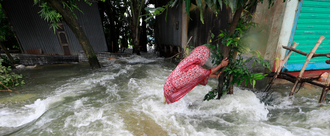


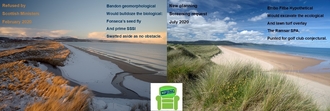%20A.jpg)


